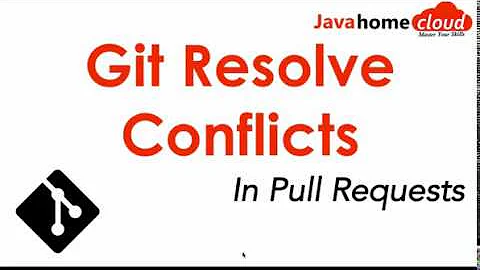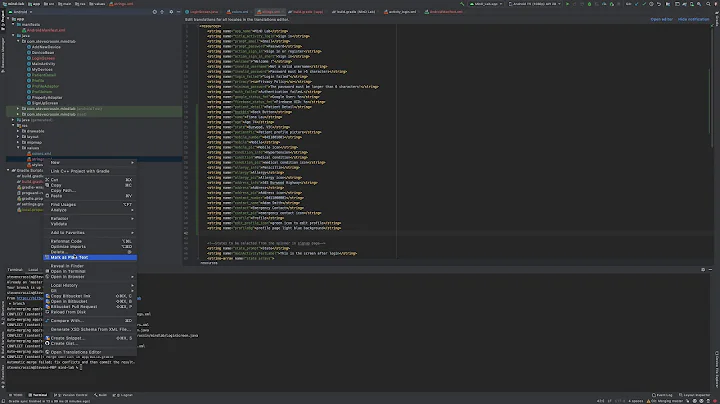Bitbucket: Conflict in remote repo, can't figure out how to resolve
When working with a fork, it is often helpful to have the upstream repository (your Master repository) configured as a remote as well as the fork (your Client A repository). For example, you probably already have an origin that represents the fork.
Add a new remote upstream to represent the "Master" repository:
git remote add upstream [email protected]:user/master-repo.git
git fetch upstream
Now you should be able to see all of the relevant branches. For instance, if you're trying to merge the master branch, these will be relevant:
-
master(local) -
origin/master(Client A) -
upstream/master(Master repo)
If you visualize these branches with gitk or git log --all --graph --decorate you will probably be able to see where the conflict is coming from. Most likely you will want to merge changes from both remotes into your local master branch:
git checkout master
git merge upstream/master # (Merge changes from the "Master" repo)
# Fix any merge conflicts that may arise
git merge origin/master # (Merge changes from the Client A repo)
# Fix any merge conflicts that may arise
Once you have done this, you should be able to push cleanly to origin:
git push origin master
Related videos on Youtube
Siraris
Updated on September 15, 2022Comments
-
Siraris over 1 year
I hope I can express this properly... I have the following setup in Bitbucket (using Git protocol). I have a master repo that contains my application. I then fork the master repo per client in order to have the flexibility to make client specific changes without affecting the master. When a generic change is required, I push to master, and then sync with the fork and then do a pull into production.
The issue I'm having is that in Bitbucket, it's saying I have merge conflicts, but I have no clue how to resolve them. Locally, I have no conflicts. When I go into Bitbucket, it tells me I'm 2 commits behind the master repo so I click sync. It says there's merge conflicts, and I need to resolve them. I then see no way to resolve these conflicts. If I do a pull on the production server, it says there's conflicts and I need to resolve them, so I do. I go in with nano (as I HATE VIM) and clean out what I need to, and go about my business. But yet the forked repo seems to still be in conflict. I have no clue what I need to do in order to resolve this situation. Regardless, it has me at a standstill because I can't push any more changes to the fork until the conflicts get resolved.
-
Siraris over 10 yearsWouldn't it be better to use rebase to the upstream, and fix any conflicts locally?
-
 Chris over 10 years@Siraris, the actual solution will depend on what you have, and what your project guidelines are. Merging
Chris over 10 years@Siraris, the actual solution will depend on what you have, and what your project guidelines are. Mergingupstream/master, thenorigin/masterintomasteris just a suggestion. You may want torebaseontoupstream/master. But it is strongly discouraged torebasepublished commits. I would avoidrebaseif it would modify anything you've alreadypushed. -
Siraris over 10 yearsOK, in re-reading what you wrote, I think what you're suggesting is what I want. One question though, if I do a git merge upstream/master, and then a git merge origin/master, will it merge my fork into the master, or will it only merge the master into the fork? I want to merge in the changes from the master, but I don't want to put the changes from the fork into the master.
-
 Chris over 10 yearsNothing in this process changes what's on
Chris over 10 yearsNothing in this process changes what's onupstream/master. You'll updatemasterwith changes fromupstream/master, then withorigin/master, somasterwill contain changes from both your Master repository and your fork. It's a good idea to testmasterat this point and make sure everything works as you expect. Then you'll push toorigin(your fork). This will cause your fork to be updated with changes fromupstream/master. -
 Chris over 10 yearsI believe you've got a separate local copy of your Master repository for "core" changes? That's what you should use for updating the Master repository.
Chris over 10 yearsI believe you've got a separate local copy of your Master repository for "core" changes? That's what you should use for updating the Master repository. -
Siraris over 10 yearsYep! I have repos for the "Master" repo, and then the Client children. So any changes to "Master" will go through the local copy, and I just merge the changes locally using your method here. I'm going to try it out. If it works... I owe you my first born.
-
Siraris over 10 yearsOh one other thing... do I need to fetch the upstream every time i do a merge? Or do I just do the checkout -> merge -> merge -> push?
-
 Chris over 10 years@Siraris, you should
Chris over 10 years@Siraris, you shouldfetchanytime you want to incorporate changes from a remote. This is what updates your remote refs, e.g.upstream/masterandorigin/master. Withoutfetching, your local copy won't see the new commits.






